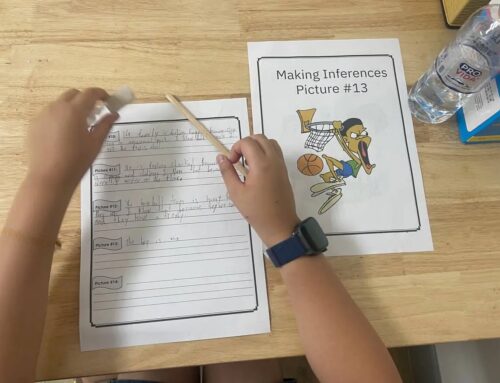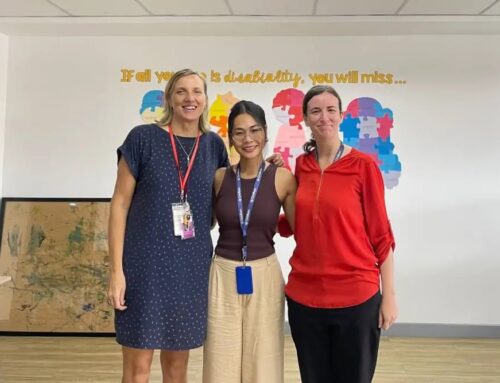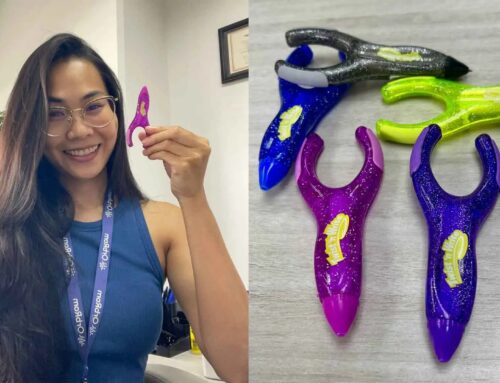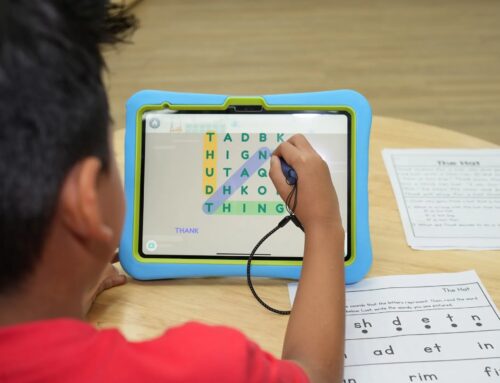[ad_1]
Climbing, running, jumping, balancing—these aren’t just fun activities for children. They are essential movements that form the foundation of gross motor skill development. For children with special needs, supporting gross motor skills is not only important for physical health but also for confidence, emotional regulation, and cognitive function.
In Phnom Penh, families often look to early intervention programs that combine therapy with play-based learning. At OrbRom Center, gross motor development is a core part of how we help children thrive in school and life.
What Are Gross Motor Skills?
Gross motor skills involve large muscle groups used for activities like walking, sitting upright, catching a ball, or climbing stairs. These skills are crucial for:
-
Postural control
-
Coordination and balance
-
Body awareness
-
Mobility and independence
-
Classroom participation (e.g., sitting still, carrying a backpack)
Children with developmental delays, cerebral palsy, autism, or sensory processing difficulties may struggle with gross motor milestones. Delays in these areas can impact a child’s ability to keep up with peers, feel competent in physical tasks, or even focus during lessons.
Why Movement-Based Learning Matters
Movement is deeply connected to brain development. Research shows that physical activity boosts attention, memory, and mood regulation. That’s why gross motor activities are often integrated into special education and therapy programs.
At OrbRom Center in Phnom Penh, we use movement not just to strengthen muscles—but to stimulate the whole child. Through purposeful play, we help children build coordination, confidence, and communication skills.
Signs a Child May Need Gross Motor Support
Parents or teachers in Phnom Penh may notice signs such as:
-
Clumsiness or frequent falling
-
Difficulty catching or kicking a ball
-
Poor posture while sitting or standing
-
Fatigue after minimal activity
-
Avoidance of playground or group physical games
If you notice these patterns, early support through Occupational Therapy or Special Needs Intensive Intervention at OrbRom can make a significant difference.
Fun and Effective Activities to Build Gross Motor Skills
You don’t need a gym to support your child’s physical development. Here are engaging, accessible activities used by therapists at OrbRom that you can also try at home or school:
1. Obstacle Courses
Set up indoor or outdoor courses using pillows, ropes, tunnels, or playground equipment. This builds motor planning and coordination.
2. Animal Walks
Have your child crawl like a bear, hop like a frog, or stretch like a cat. These movements improve strength, rhythm, and sensory integration.
3. Wall Climbing or Climbing Games
Activities like rock walls help with grip strength, core activation, and upper-limb coordination. Plus, it boosts confidence!
4. Balance Games
Use a balance beam, stepping stones, or simple tape on the floor. Balance is foundational for walking, stair climbing, and sitting upright.
5. Outdoor Play
Encourage regular time in nature or playgrounds. Running, climbing, and swinging develop strength and endurance naturally.
The Role of Therapy and Sensory Tools
At OrbRom Center, our therapists assess each child’s gross motor development and create individualized plans. For some children, sensory regulation plays a key role in physical success. If a child is either under-responsive or hypersensitive to sensory input, they may need calming tools before physical activity.
Here are helpful tools from our Phnom Penh Sensory Shop to support gross motor readiness:
These tools, when paired with therapy, enhance the child’s ability to participate in physical tasks with confidence and joy.
Final Thoughts
Gross motor development lays the groundwork for independence, emotional regulation, and social connection. For children with special needs, early support in this area opens doors—not just on the playground, but in every area of life.
If you’re in Phnom Penh and your child struggles with coordination, strength, or movement-based activities, don’t wait. At OrbRom Center, we blend therapy, play, and compassion to help every child climb higher—literally and figuratively.
[ad_2]
Source link






